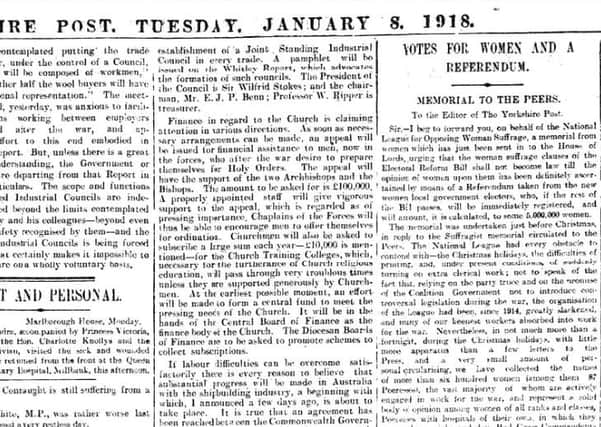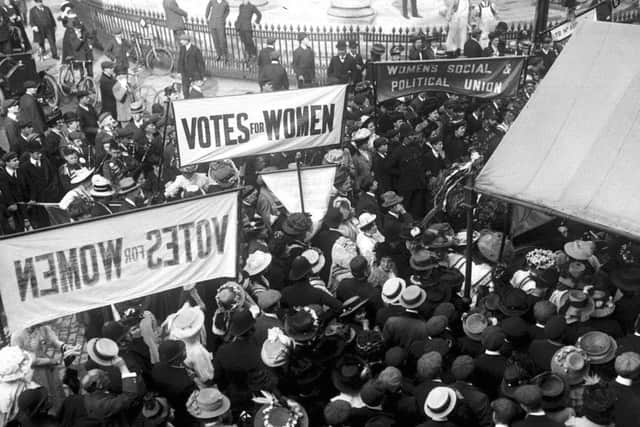Leeds nostalgia: The women who were against women gaining the vote... in 1918


Writing in the Yorkshire Post in January 1918, writer and orator Mary Humphrey Ward, one of the leading voices of the often unpopular campaign, outlined why giving almost 5m women the right to vote in elections was such an onerous responsibility that it should be postponed until the men returned from the war.
She wrote: “Let the women decide if the great responsibility is to be thrust upon them or not, in the absence of our husbands, brothers and son and during the worst stress of the war.”
Advertisement
Hide AdAdvertisement
Hide AdMary related how one woman had written to her to say ‘I have four sons fighting in this war, it is too unjust that such a decision should be taken while they can neither affect it, nor counsel me.’


“And that is the feeling of thousands,” she said.
Ward’s campaign, which was not waged alone but was, in fact, backed by many other educated women, was nonetheless greeted with an overwhelmingly negative response.
These band of campaigners argued that most women lacked the education to properly engage with political ideas and that the problems of the British Empire were only solvable by men. Their society had more than 15,000 paid up members and even mounted a 250,000 name petition against the new laws.


Advertisement
Hide AdAdvertisement
Hide AdFellow campaigner social reformer Violet Markham said: “We believe men and women are different - not similar - beings, with talents that are complementary, not identical, and that they therefore ought to have different shares in the management of the State, that they severally compose.”